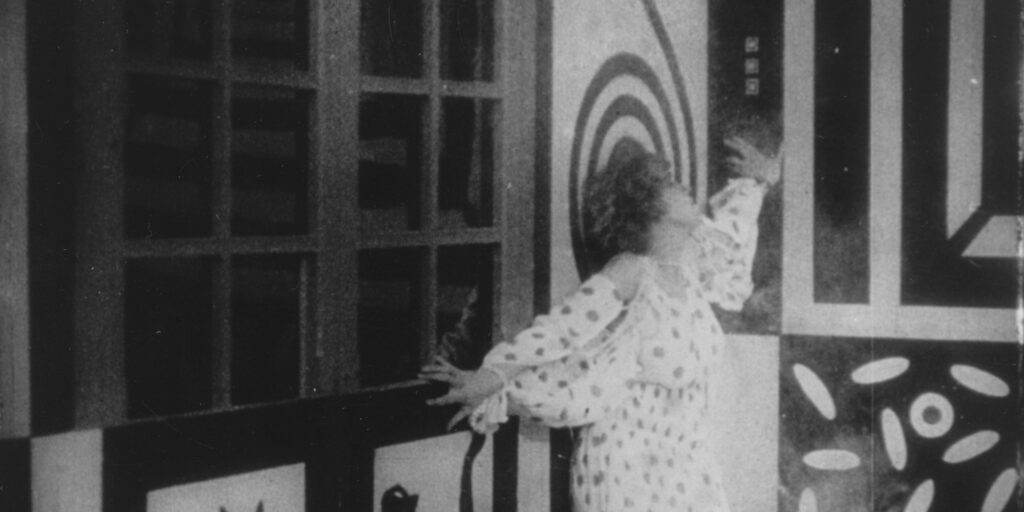RUSSIAN DIVAS IN ITALY

Curated by Mariann Lewinsky and Tamara Shvediuk
Between 2022 and 2023, just as the Gosfil’mofond in Russia was uncovering and identifying three films featuring Diana Karenne, the diva of Italian silent cinema, the Cineteca di Bologna restored La tartaruga, a hitherto lost film with Helena Makowska, and the Cinémathèque française was working on a new restoration of Anton Giulio Bragaglia’s Thaïs featuring the dancers Thaïs Galitsky and Ileana Leonidoff. Hence the idea of a programme on Russian divas in Italian silent cinema, a little-known and little-explored phenomenon.
First, a geographical definition is necessary. These actresses and, more broadly, all the Russian workforce settling in Italy in the 1910s, were originally from the Russian Empire as it existed before the loss of many of its European territories due to the treaty of Brest-Litovsk. This is an important detail, because almost all these artists came from specific geographical areas (primarily Ukraine, but also Poland). And yet, no doubt they expressed the same Russian sensibility, culture and style, which also emerges from the language they used in their private correspondence.
Some actresses, such as Ileana Leonidoff, Helena Makowska, Berta Nelson and Diana Karenne moved to Italy well before the war. The context was the craze for Russian stage artists ever since 1909, when the Ballets Russes had appeared in Europe thanks to impresario Sergei Diaghilev, achieving success in a short time and turning the ballerinas into true stars: Anna Pavlova, Ida Rubinstein, Tamara Karsavina, Vera Karalli (later one of the main stars of silent Russian pre-revolutionary cinema). However, a remarkable part of this same extraordinary generation of artists arrived in Italy following the Russian Revolution (the so-called “white emigration”). Among these were Tatiana Pavlova, Varvara Janowa and Olga Ork de Belajeff. Many of them were of Jewish extraction, such as Karenne, Nelson and Pavlova.
The critics immediately appreciated the clean break of the Russian actresses with the diva tradition and enthusiastically welcomed their new, more natural and credible style, as well as the intelligence and resourcefulness of these women who often had a sound artistic background (thanks to their previous experiences in opera, ballet and stage). It is no coincidence that they achieved the same resounding success within a few years across Europe, first in France, then in Germany.
In addition to the above-mentioned restorations, the programme will be completed with Miss Dorothy starring Karenne (which a few people saw at the 2020 Ritrovato), two extraordinary films with Berta Nelson, Vittoria o morte! and Fiamma simbolica (preserved in the Desmet Collection at the EYE Filmmuseum), and a precious rediscovered fragment of La marcia nuziale, which will give us an opportunity to see the diva who most inspired every other actress of Italian cinema back then, Lyda Borelli.
Tamara Shvediuk and Federico Striuli
Program
Tuesday 27/06/2023
16:00
Cinema Lumiere - Sala Officinema/Mastroianni
Karenne: MISS DOROTHY / SMARRITA!
Karenne: MISS DOROTHY / SMARRITA!
Tamara Shvediuk and Federico Striuli
Stephen Horne (Miss Dorothy, Cunegonde) and Antonio Coppola (Smarrita!)
Wednesday 28/06/2023
18:30
Cinema Lumiere - Sala Officinema/Mastroianni
THAÏS e altre dive
THAÏS e altre dive
Noémie Jean, Hervé Pichard (La Cinémathèque française), Marta Donzelli, Alberto Anile (CSC-Cineteca Nazionale) and Andrea Meneghelli
Gabriel Thibaudeau and violin accompaniment by Silvia Mandolini
Thursday 29/06/2023
16:00
Cinema Lumiere - Sala Officinema/Mastroianni
VITTORIA O MORTE! / FIAMMA SIMBOLICA – Lux Film
VITTORIA O MORTE! / FIAMMA SIMBOLICA – Lux Film
Neil Brand (Vittoria o morte!) and Stephen Horne (Fiamma simbolica e La Bouteille de Patouillard), drums accompaniment by Frank Bockius (Fiamma simbolica e La Bouteille de Patouillard)


